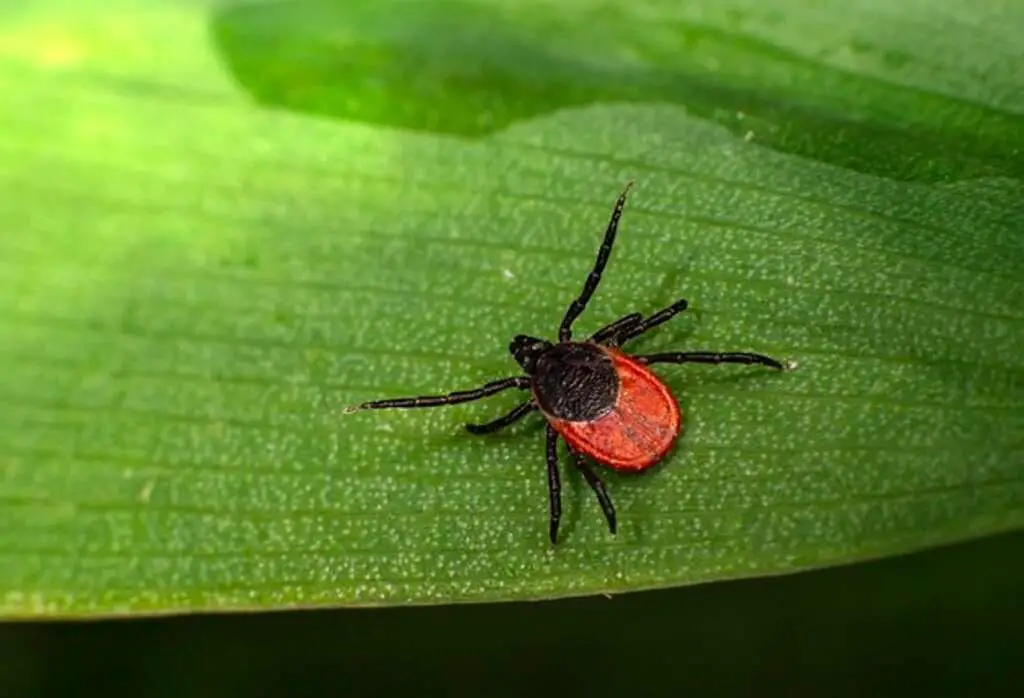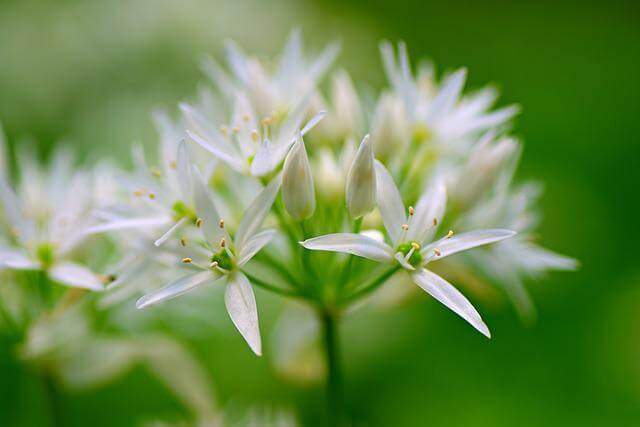11 Plants That Repel Ticks Effectively: Keep Ticks at Bay
Welcome to our comprehensive guide on herb plants that not only bring beauty and flavor to your garden but also serve as natural defenders against ticks. As outdoor enthusiasts and dedicated gardeners, we understand the importance of keeping your outdoor spaces tick-free while enjoying the bounties of nature.
Ticks can be more than just a nuisance; they can transmit diseases that pose a risk to you, your family, and your pets. However, there’s no need to resort to harsh chemicals or pesticides. Nature provides a solution in the form of herbs that are not only aromatic and visually appealing, but also have tick-repelling properties.
In this guide, we will introduce you to nine herb plants that are not only easy to grow, but also effective at deterring ticks. Discover the beauty of these herbs while creating a safer, more enjoyable outdoor environment for yourself and your loved ones. Let’s dive in and explore the world of tick-repelling herbs.
Table of Contents
Plants That Repel Ticks Effectively
Lavender
Lavender, with its enchanting fragrance and striking purple blooms, serves as an effective natural tick repellent due to its aromatic oils. The scent of lavender is delightful to humans, but repels ticks and other insects.
To grow lavender successfully and harness its tick-repelling properties, plant it in well-drained soil under direct sunlight. Lavender is quite drought-tolerant and doesn’t require frequent watering. You can propagate lavender through cuttings or seeds, and it thrives in both garden beds and containers.
To utilize lavender as a tick repellent, consider placing potted lavender plants around outdoor seating areas, entry points to your home, or along garden paths.
You can also harvest lavender flowers and leaves to make sachets or essential oils, which can be applied to your skin or clothing to enhance tick protection during outdoor activities.
This multifaceted herb not only adds charm to your garden but also helps keep unwanted ticks at bay.
Mint
Mint, known for its refreshing aroma and culinary uses, is another herb that can effectively repel ticks. Its strong scent, particularly from varieties like peppermint and spearmint, is pleasing to us but deters ticks and other pests.
To cultivate mint for tick-repelling purposes, plant it in well-drained soil with partial to full sunlight. Mint is a vigorous grower, so it’s best to contain it in a pot or a designated area in your garden to prevent it from spreading uncontrollably. Regular pruning will help maintain its growth and aroma.
To utilize mint as a tick repellent, crush a few leaves and rub them on your skin or clothing before heading outdoors. You can also create a homemade mint spray by boiling mint leaves in water, straining the liquid, and transferring it to a spray bottle.
This natural tick repellent not only safeguards you during outdoor activities but also adds a refreshing twist to your gardening endeavors.
Lemongrass
Lemongrass, known for its zesty aroma and citrusy flavor, is another fantastic herb that acts as a natural tick repellent. This tropical grass emits a scent that deters ticks and other insects. To cultivate lemongrass effectively and maximize its tick-repelling properties, plant it in well-draining soil with plenty of sunlight.
Lemongrass is relatively low-maintenance, requiring regular watering but with good drainage to prevent waterlogging. You can propagate lemongrass through stalk cuttings and plant it in your garden or in pots.
To utilize lemongrass as a tick repellent, place potted lemongrass plants around outdoor gathering areas, near entrances to your home, or along the edges of your yard.
Harvest lemongrass leaves to make essential oils or infusions that can be applied to your skin or clothing to enhance tick protection during outdoor adventures. Lemongrass not only adds a delightful citrusy touch to your garden but also helps keep ticks away effectively.
Garlic
Garlic, a kitchen staple known for its pungent aroma and culinary uses, doubles as an effective tick repellent owing to its strong scent. To grow garlic successfully and utilize it as a tick deterrent, plant cloves in well-drained soil under full sunlight.
Ensure the cloves are spaced adequately, and keep the soil consistently moist but not waterlogged. Garlic can be propagated by planting individual cloves, and it grows well in both garden beds and containers.
To harness its tick-repelling properties, consider placing potted garlic plants around outdoor seating areas, near entry points to your home, or along paths in your garden.
You can also crush garlic cloves and mix them with water to create a homemade garlic spray, which can be applied to your skin, clothing, or garden plants to deter ticks effectively. Garlic not only adds flavor to your dishes but also acts as a potent ally in your battle against ticks.
Rosemary
Rosemary, known for its aromatic and flavorful leaves, is another herb that can effectively repel ticks. Its strong scent, which is pleasant to humans but unpleasant to ticks, makes it a valuable addition to your tick-fighting arsenal. When cultivating rosemary, choose a sunny spot with well-drained soil.
This herb is quite hardy and doesn’t require excessive watering, making it an excellent choice for various climates. You can propagate rosemary from cuttings or seeds and grow it in your garden or in pots.
To utilize rosemary as a tick repellent, strategically place potted rosemary plants around outdoor gathering areas, near windows, or along walkways. Harvest the fragrant leaves and stems for use in homemade tick-repelling sachets or essential oils.
These can be applied to your skin or clothing to enhance your protection against ticks during outdoor adventures. Rosemary not only elevates your culinary creations but also helps safeguard you from tick-related concerns in your outdoor spaces.
Wormwood
Wormwood, known for its distinctive bitter aroma, is another herb with remarkable tick-repelling qualities. Its strong scent is a natural deterrent for ticks and various insects. To cultivate wormwood effectively, provide it with well-drained, sandy soil and ample sunlight.
This herb is quite hardy and drought-resistant, making it a low-maintenance addition to your garden. You can propagate wormwood from cuttings or seeds and grow it in garden beds or pots.
To utilize wormwood for tick protection, place potted wormwood plants strategically around your outdoor spaces or near potential tick entry points.
Harvest wormwood leaves and flowers to create sachets of essential oils, which can be applied to your skin or clothing to enhance your defense against ticks during outdoor adventures.
With its distinctive fragrance and tick-repelling properties, wormwood is a valuable herb for safeguarding your outdoor experiences.
Common Rue
Rue, known for its blue-green foliage and strong aroma, is another herb that serves as a natural tick repellent. Much like lavender, rue’s scent is pleasant to us but repels ticks and other insects. To cultivate rue effectively and maximize its tick-repelling potential, ensure it is planted in well-drained soil under direct sunlight.
Rue is a hardy herb that requires minimal maintenance and can be propagated through seeds or cuttings. It can thrive in garden beds or pots. To utilize rue as a tick repellent, strategically place potted rue plants around outdoor living spaces, entrances to your home, or along walkways.
You can also harvest rue leaves and flowers to create sachets or essential oils for topical application, enhancing your protection against ticks during outdoor adventures. Rue not only adds beauty to your garden but also contributes to a tick-free outdoor environment.
Thyme
Thyme, renowned for its aromatic and culinary uses, is another herb with tick-repelling properties. Its fragrant oils, particularly thymol, act as a natural deterrent for ticks and other pests. To cultivate thyme effectively, plant it in well-draining soil with plenty of sunlight, as thyme thrives in sunny and dry conditions.
It’s a low-maintenance herb, requiring minimal watering once established. You can propagate thyme from cuttings or seeds and plant it in garden beds or containers. To use thyme as a tick repellent, place potted thyme plants strategically around outdoor seating areas, walkways, or entrances.
Harvest thyme leaves and stems to create sachets or essential oils, which can be applied to your skin or clothing for added tick protection during outdoor adventures. With its aromatic allure and tick-repelling qualities, thyme is an excellent addition to your herb garden.
Catnip
Catnip, a member of the mint family, possesses remarkable tick-repelling qualities attributed to its potent essential oil, nepetalactone. Growing catnip is a breeze, as it thrives in well-drained soil and partial to full sunlight.
This herb is known for its resilience and can often flourish with minimal care. You can propagate catnip through seeds or cuttings, making it an accessible addition to your garden. To maximize its tick-repelling benefits, strategically place catnip plants near outdoor sitting areas or around the perimeter of your garden.
You can also create homemade catnip sprays or oils to apply to your skin or clothing, helping shield you from tick bites during outdoor adventures. With its dual purpose of enticing cats and deterring ticks, catnip is a valuable herb to cultivate for both feline friends and tick protection.
Chrysanthemum
Chrysanthemum, celebrated for its vibrant and diverse range of blooms, is another herb known for its tick-repelling properties. Its natural compounds, particularly pyrethrum, are used in various insect repellent products.
Growing chrysanthemums in well-draining soil and providing them with ample sunlight will ensure their health and vigor. These hardy plants are often perennial, making them a long-lasting addition to your garden.
To maximize their tick-repelling benefits, strategically plant chrysanthemums near outdoor gathering spots, walkways, or entrances to your home. Harvesting the flower heads and drying them can yield a potent ingredient for creating your own tick-repelling solutions, such as sprays or powders.
Chrysanthemums not only contribute stunning colors to your garden but also provide an effective line of defense against ticks.
Marigold
Marigold, with its vibrant golden and orange blossoms, is another herbaceous plant known for its tick-repelling properties. Much like lavender, marigold emits a fragrance that deters ticks and various insects while offering a burst of color to your garden.
Growing marigolds is relatively easy, as they thrive in well-drained soil and require plenty of sunlight. Regular deadheading helps prolong their blooming season. To make the most of marigold’s tick-repelling capabilities, consider planting them in your garden beds or as a border around your yard.
You can also harvest marigold flowers to create homemade repellent sprays or oils. By incorporating marigolds into your garden and outdoor living spaces, you not only add a touch of vibrancy but also naturally reduce tick encounters during your outdoor adventures.


















